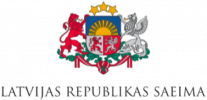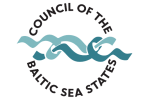The Consultative Council of the Baltic Assembly met in Vilnius on 19-20 September 2024, continuing its work to enhance the regional cooperation of the Baltic States. With key discussions focusing on the work of various committees, the meeting underscored the Baltic Assembly's commitment to fostering security, resilience, and solidarity, especially in the context of the ongoing challenges facing Europe.
Under the leadership of Lithuania in 2024, the Baltic Assembly concentrated on strengthening security, defending democratic values, and supporting Ukraine amidst Russia's unprovoked aggression. The Lithuanian presidency’s motto, “Growing strong and resilient together,” was a driving force for cooperation and unity across the Baltic region.
Security and resilience – top priority
Security remained a central theme throughout the discussions, particularly in light of recent threats to critical infrastructure. Chair of the Security and Defence Committee Audrius Petrošius highlighted the attack on the Balticconnector gas pipeline and communication cables in the Baltic Sea, emphasizing the vulnerabilities that require immediate and collaborative efforts to safeguard. The Baltic States, in cooperation with NATO and international partners, are intensifying their approach to infrastructure protection, focusing on sharing information and improving response capabilities.
The development of a coordinated and connected civil defence system was another crucial focus. The Baltic Assembly has actively promoted cooperation among the Baltic States in civil defence, aligning their efforts with the EU Civil Protection Mechanism. This includes strengthening mass evacuation strategies, enhancing public awareness, and ensuring the preparedness of healthcare facilities in times of crisis. Joint exercises and training are planned to ensure smooth coordination and knowledge transfer among the Baltic States.
Advancing healthcare cooperation
In 2024, the Health, Welfare and Family Committee of the Baltic Assembly, chaired by Antanas Vinkus, focused on three critical healthcare topics: advancing the establishment of an Advanced Particle Therapy Centre for cancer treatment, improving access and affordability of medicines, and strengthening cooperation between the health and military sectors. The Committee continued to support the CERN Baltic Group initiative to create the particle therapy centre, which promises to revolutionize cancer treatment in the region. The Committee urged Baltic governments to secure funding for a full-scale feasibility study to assess the project’s viability, highlighting its potential to significantly improve healthcare outcomes across the Baltic States.
Additionally, the Committee explored ways to improve access to affordable medicines through joint procurements, starting with commonly used drugs such as antibiotics. This strategy would lower costs and ensure a consistent supply of essential medicines. The Committee also discussed the importance of collaboration between health sectors and military services, emphasizing the need for joint emergency training exercises and preparedness in response to regional threats.
Energy security and regional connectivity
The Economics, Energy and Innovation Committee of the Baltic Assembly, chaired by Kęstutis Masiulis, tackled several vital topics aimed at enhancing regional cooperation in 2024. A key focus was on addressing regional energy challenges, particularly readiness to disconnect from the BRELL energy grid and synchronize with European networks. Energy security, as highlighted in the discussions, is as crucial as military security, with an emphasis on ensuring that these energy interconnections do not drive up costs for Baltic citizens. The committee also explored enhancing land and sea transport connectivity, particularly through the Rail Baltica and Via Baltica projects, stressing the importance of using a European rail gauge for military cargo transportation in times of crisis.
Another significant topic was fostering an innovative and connected business environment across the Baltic States. Digital transformation and connectivity remain priorities for the region, with an emphasis on harmonizing projects across the Baltic States. Vice Chair of the Committee Andris Kulbergs reinforced the need for a unified approach to connectivity, stressing that the Baltic States must work together to align road, rail, and energy networks for collective prosperity and security. Collaborative efforts will be key to achieving these ambitious goals and strengthening the region's infrastructure.
Strengthening cultural resilience
During the Lithuanian presidency in 2024, the Baltic Assembly’s Education, Science, and Culture Committee, chaired by Vytautas Juozapaitis, focused on three primary areas: establishing a Baltic Research Fund, enhancing cooperation among educational institutions, and promoting culture-driven social resilience. The Baltic Research Fund aims to foster scientific collaboration across the Baltic States, offering much-needed funding for joint research projects and enhancing scientific excellence. Inspired by the Nordic model, this initiative would improve research quality, increase mobility, and strengthen networks within the region. The Committee has recommended the governments to start work on an implementation plan and budget framework to make the Fund a reality.
In education, the Baltic States share similar challenges, such as teacher training and low student mobility. The Committee explored opportunities for harmonizing educational systems, including initiatives like teaching Baltic languages in schools and developing joint educational programs with CERN. The Committee also emphasized the role of culture in building social resilience, with initiatives like the "Song of the Border" route celebrating the region's rich cultural heritage. Strengthening cultural cooperation, particularly through the Baltic Culture Fund, is seen as vital for uniting the Baltic communities, fostering shared identity, and promoting mental health and social cohesion during crises.
Environmental protection and animal welfare
Vice Chair of the Natural Resources and Environment Committee Tiit Maran informed that this year the Committee focused on biodiversity protection, animal welfare, and advancing the circular economy in the Baltic States. The Committee emphasized the importance of cooperation across the Baltics to address shared environmental challenges. Discussions centered on harmonizing Natura 2000 management plans for biodiversity conservation and developing transboundary water management plans. The Committee also highlighted the need for precision agriculture and the promotion of genetic diversity through collaboration with the Nordic Genetic Resource Centre.
Animal welfare was another key topic, with the Committee calling for stricter standards to reduce the need for antibiotics and prevent disease outbreaks, such as African swine fever. The movement towards banning fur farming in the Baltic States was commended, with a commitment to continue these efforts. The Committee also explored the potential of a Pan-Baltic food labeling system to provide consumers with transparent information about food products. On the circular economy, the successful Estonian-Latvian deposit refund system was cited as a model for future cross-border packaging return initiatives, highlighting the region’s commitment to sustainability and environmental protection.
Looking ahead: The Latvian presidency in 2025
As the Latvian delegation takes over the Presidency in 2025, Vice President of the Baltic Assembly Jānis Vucāns reported that the Baltic Assembly will continue to prioritize regional security, prosperity, and sustainability. The Assembly's focus will include enhancing interconnected energy, transport, and digital policies, while maintaining its support for Ukraine and upholding democratic values.
The Baltic Assembly will also deepen its partnerships with the Benelux, Nordic, and Visegrad countries, seeking regular information exchange and experience sharing to address common challenges. As the region faces increasingly complex issues, cooperation within and beyond the Baltic States remains essential for a resilient and prosperous future.
The Consultative Council’s 2024 meeting highlighted the importance of a unified approach to security, civil defence, healthcare, and cultural resilience in the Baltic region. Through collaborative efforts, the Baltic States are better equipped to address the challenges ahead, ensuring a secure and prosperous future for the entire region.
Photos
© Seimo kanceliarijos: Ilona Šilenkova, Olga Posaškova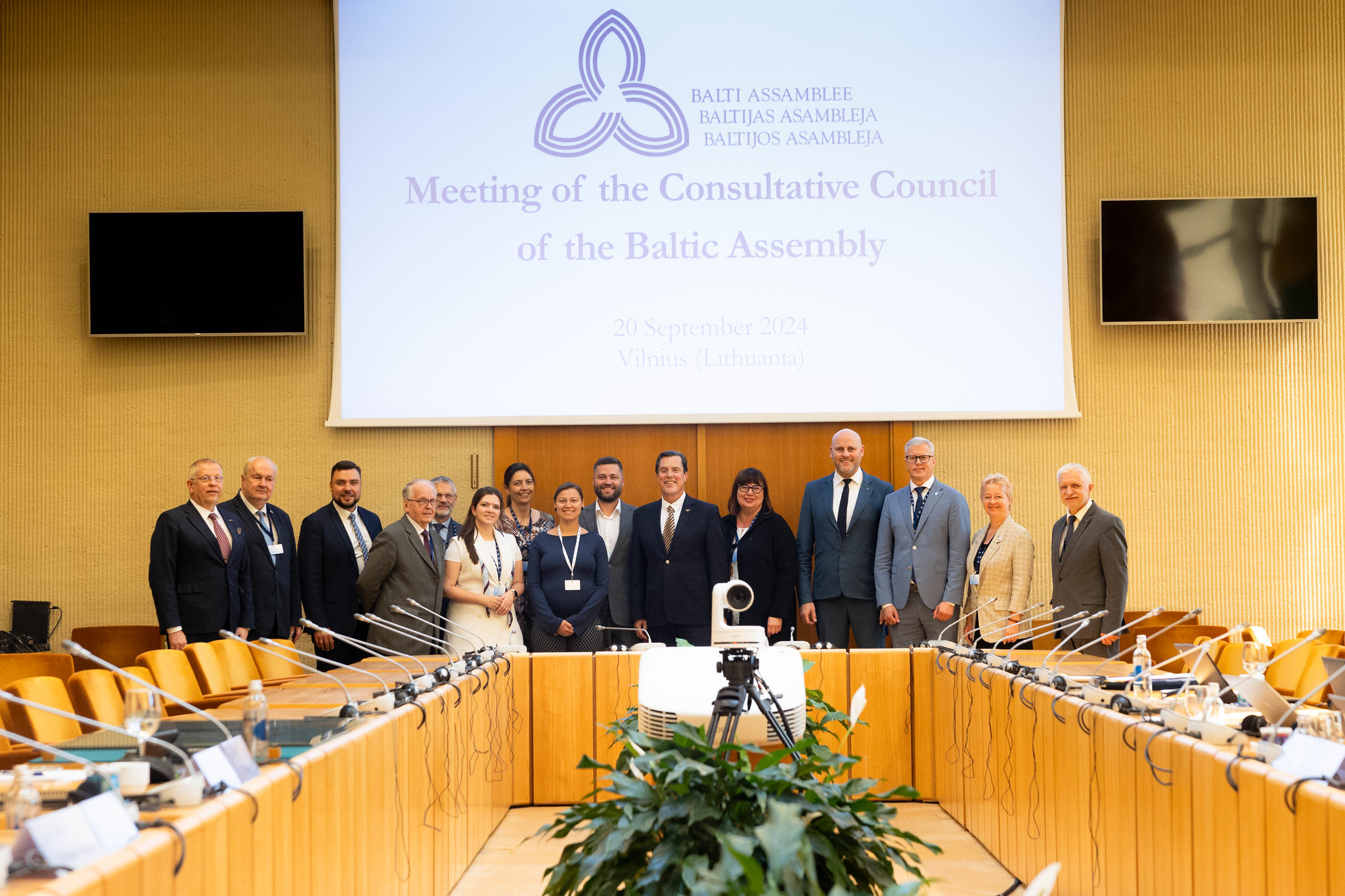
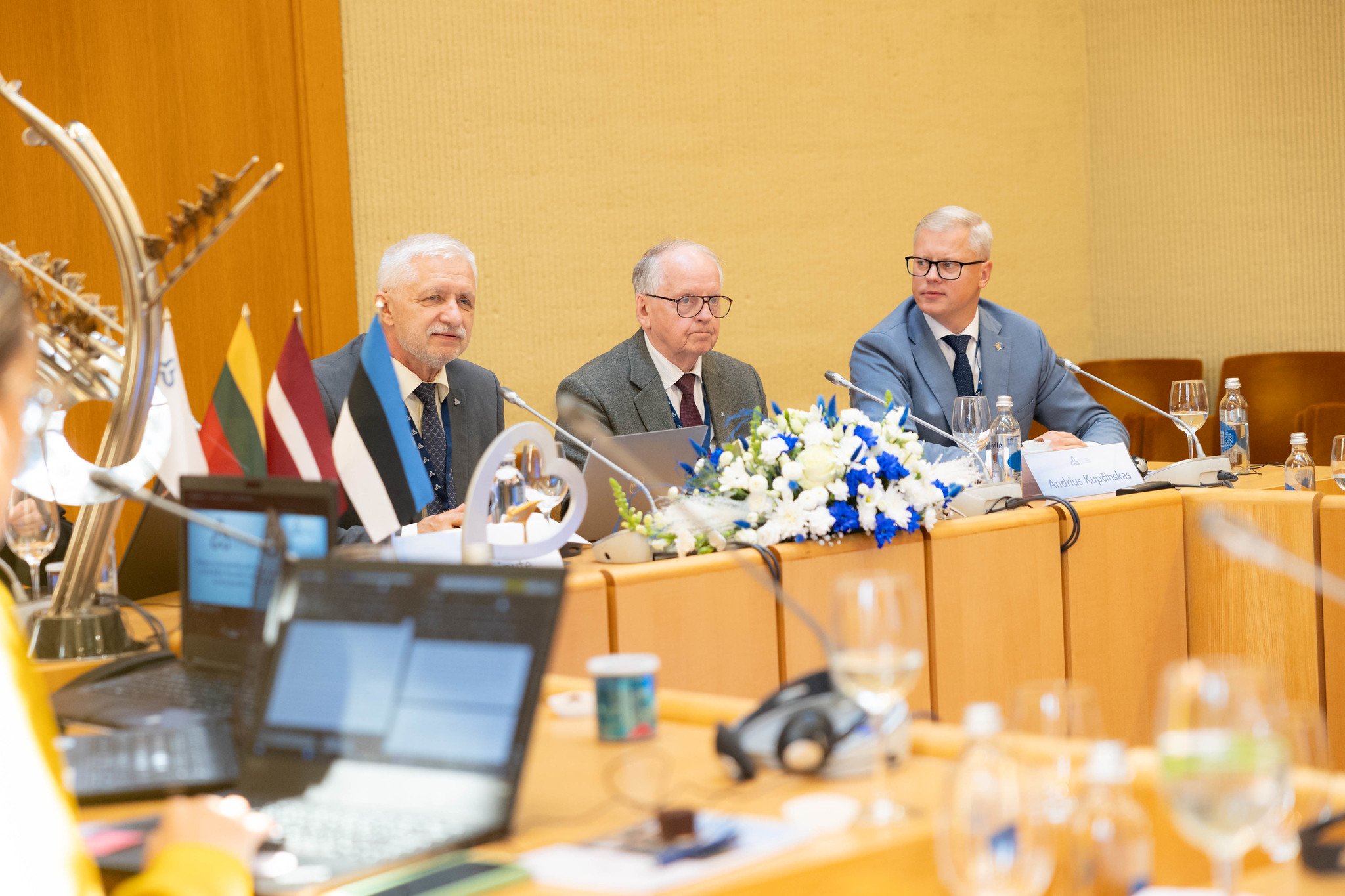
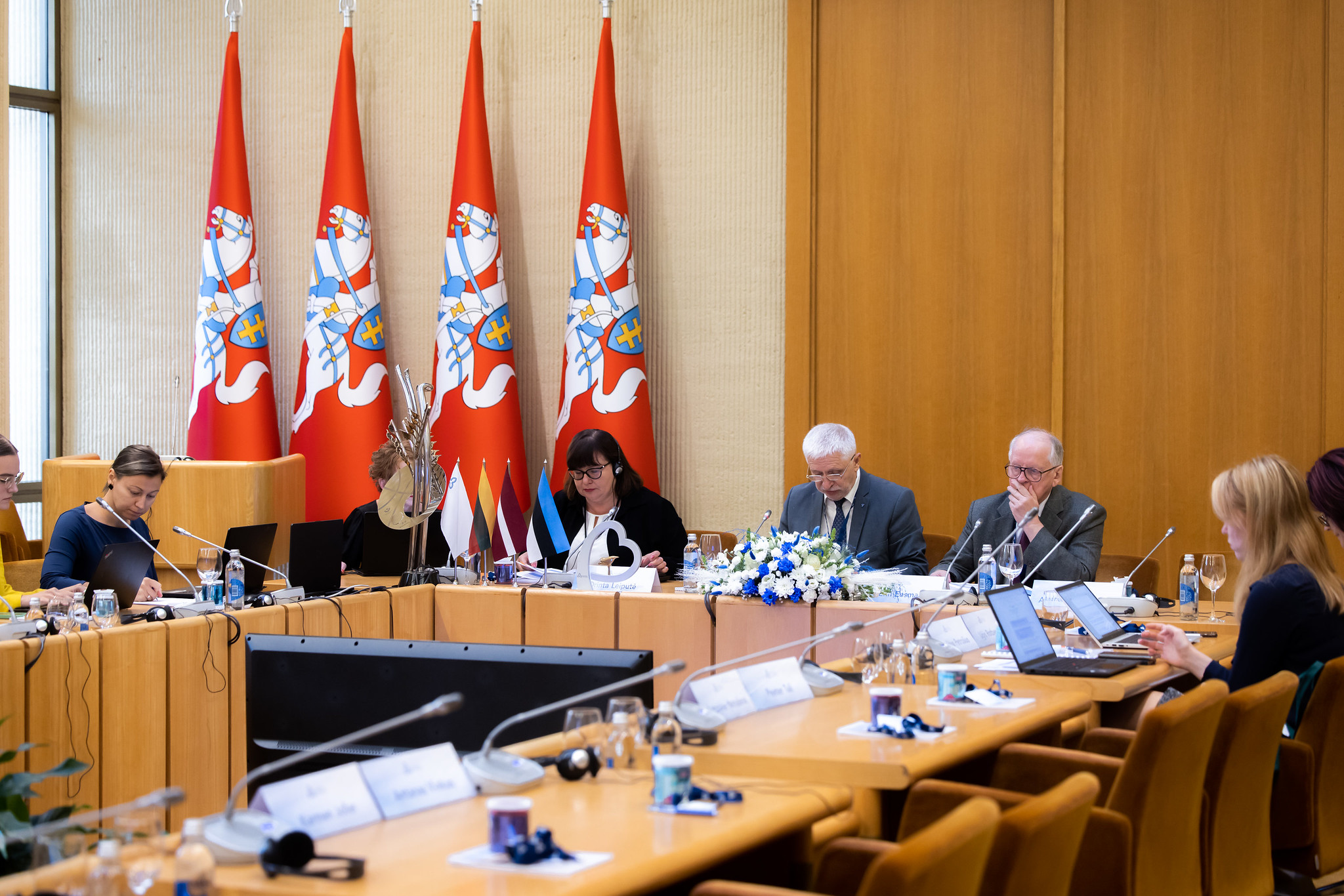
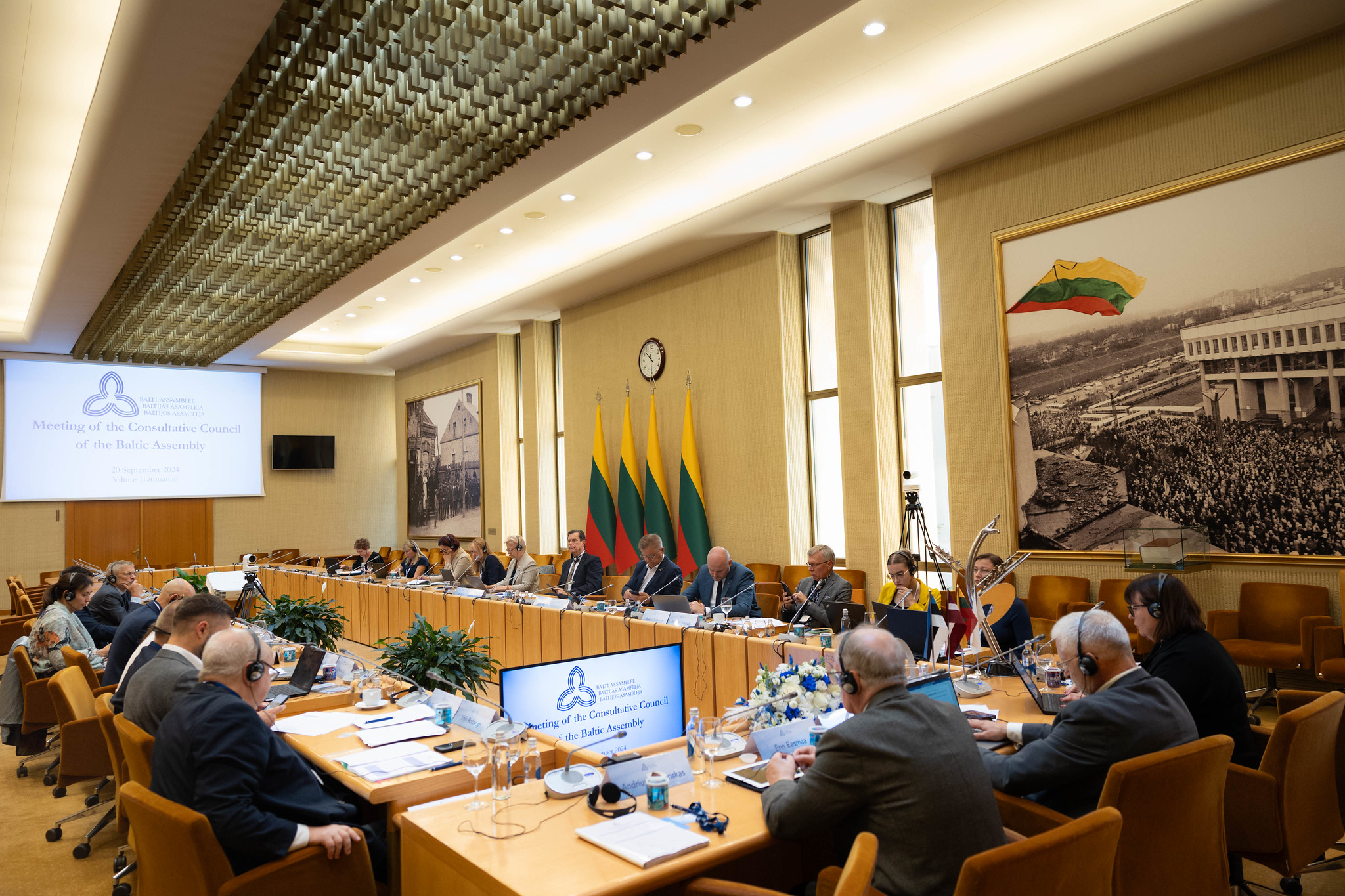
 Print
Print 

